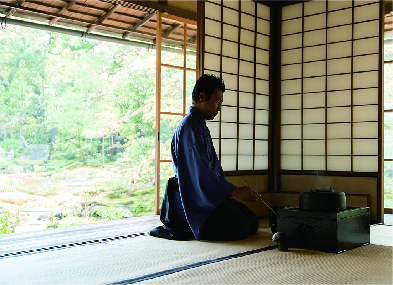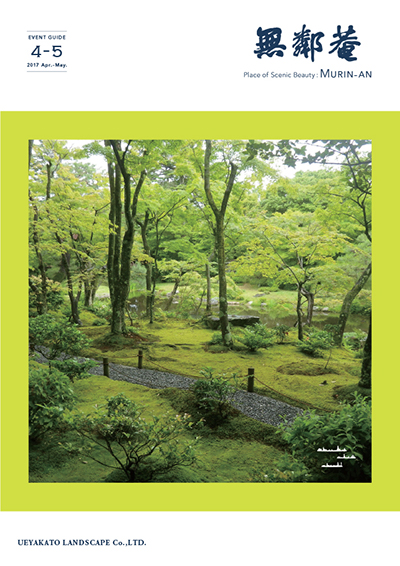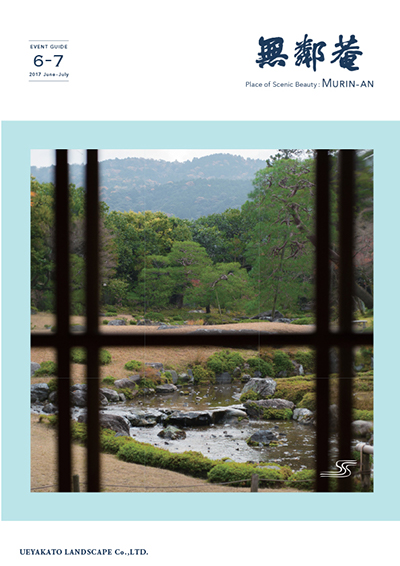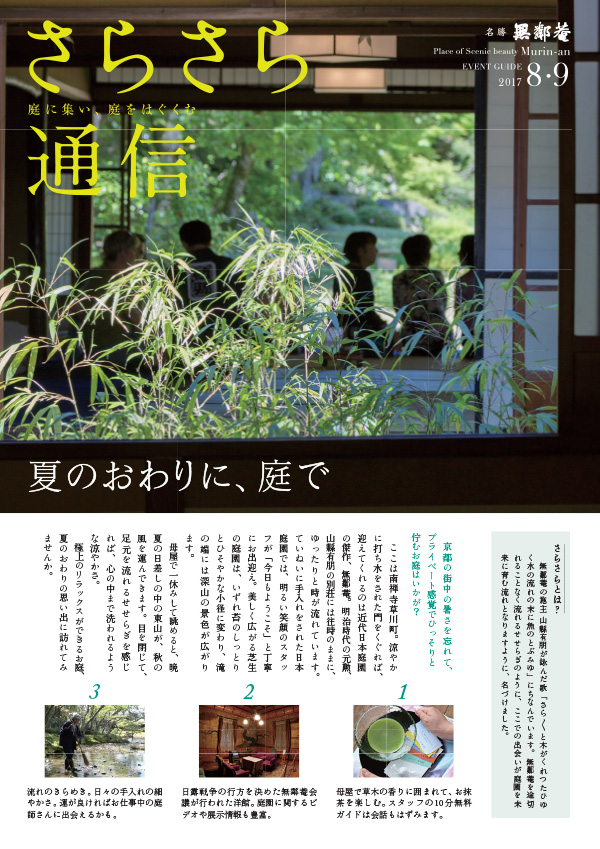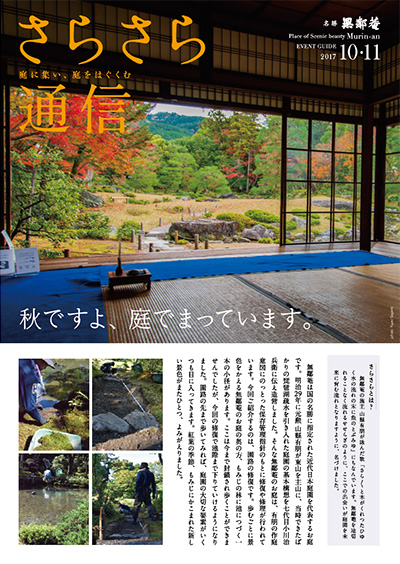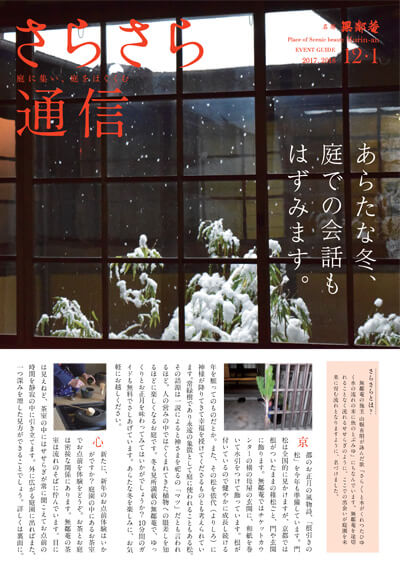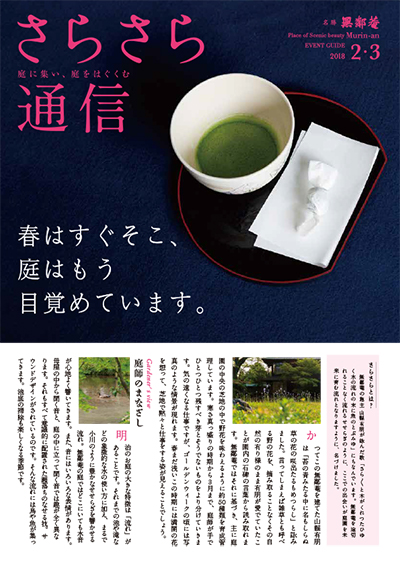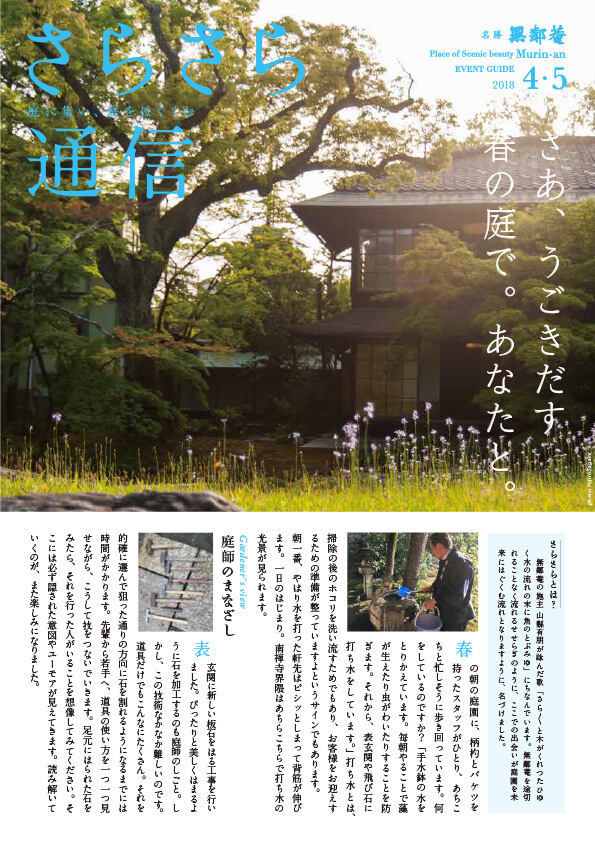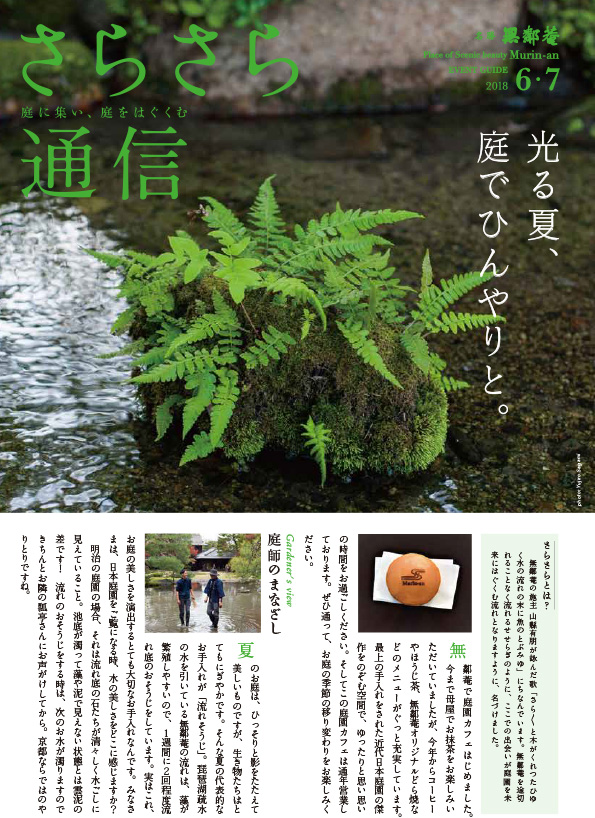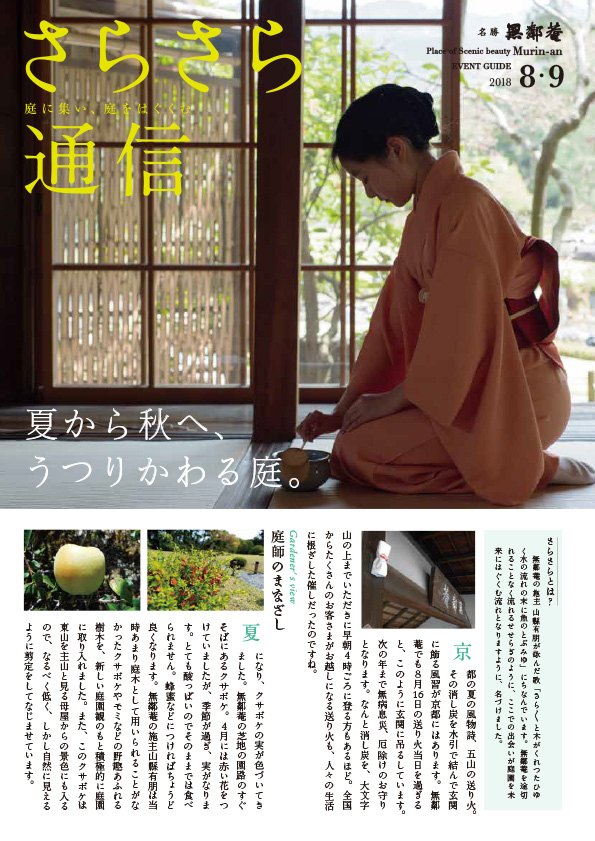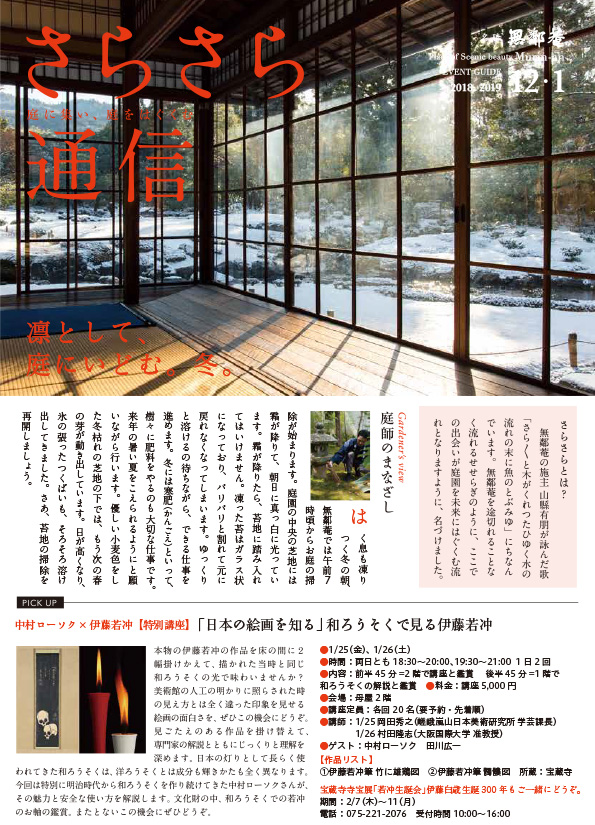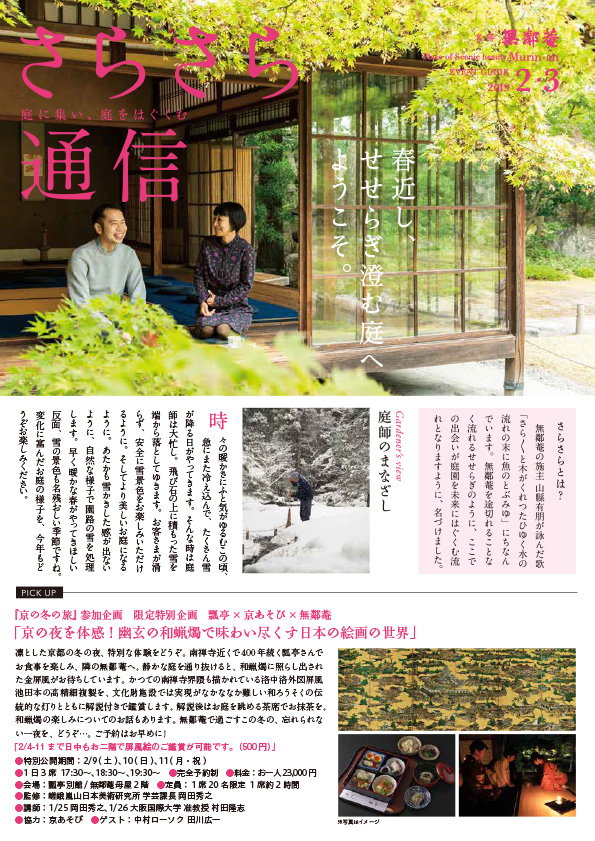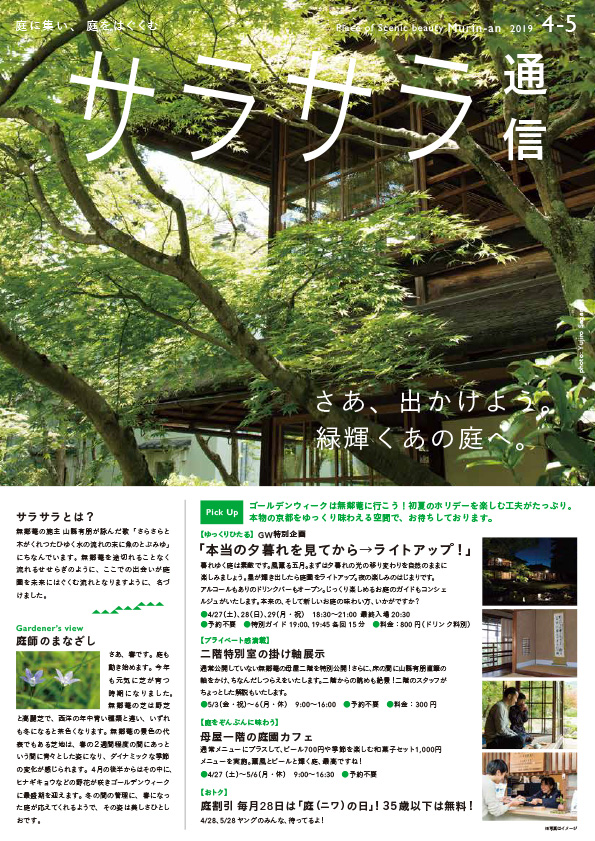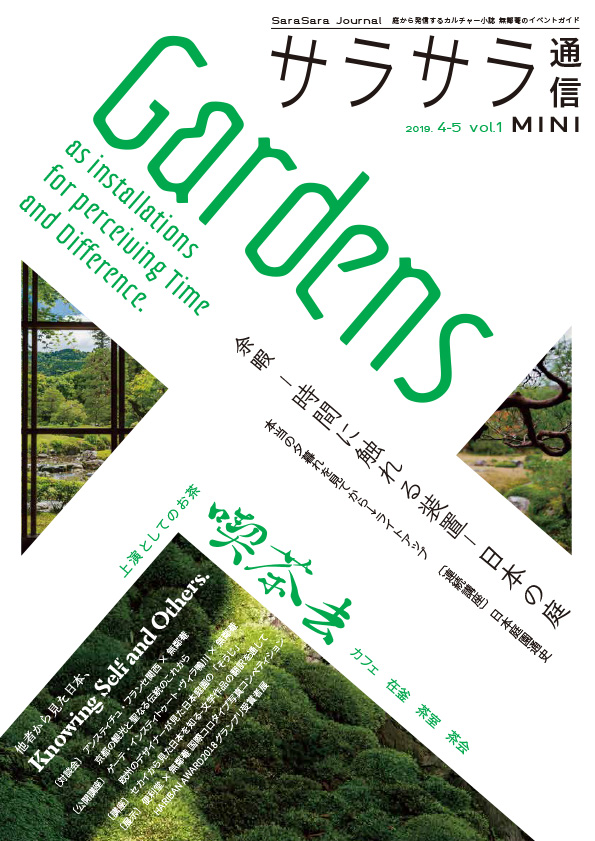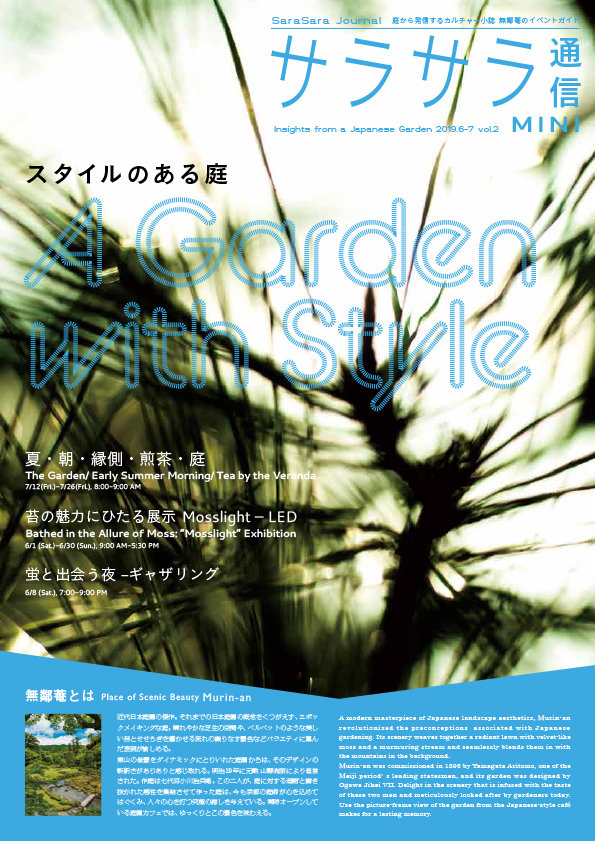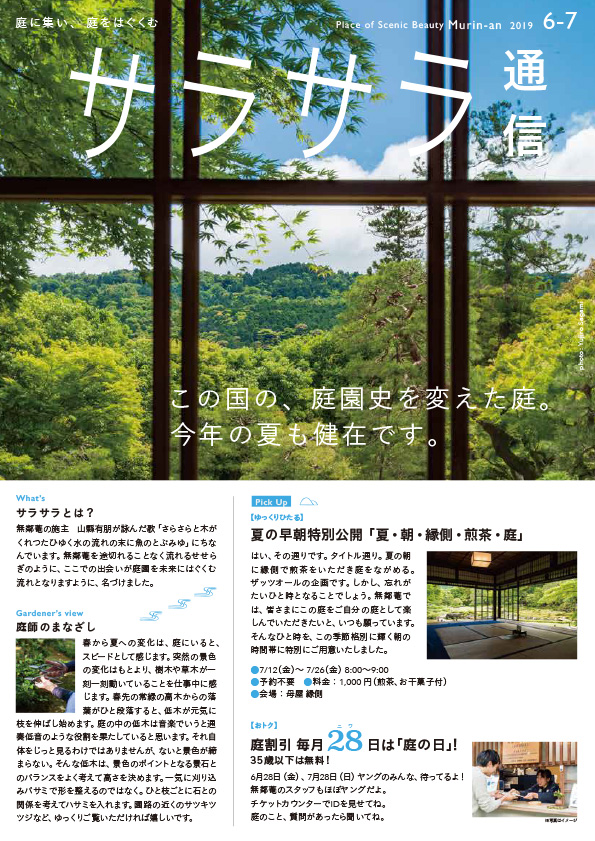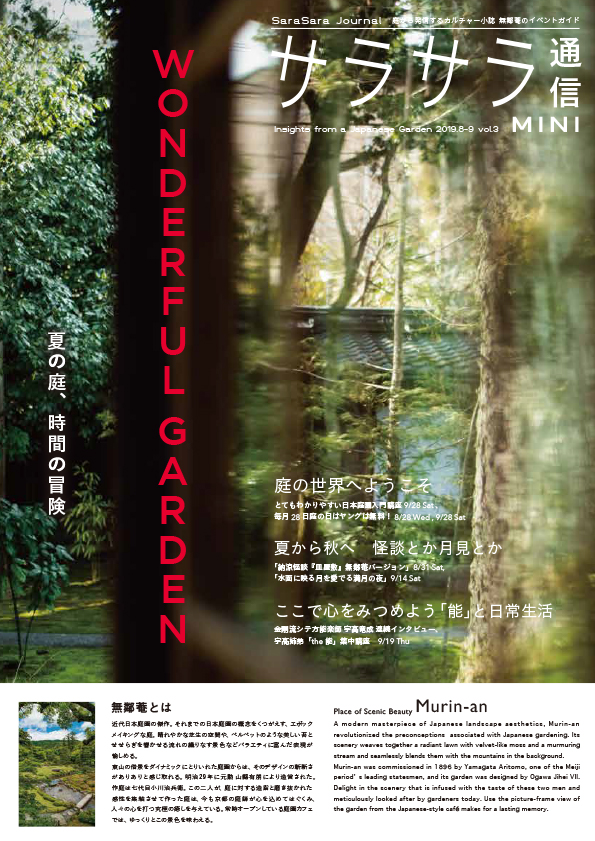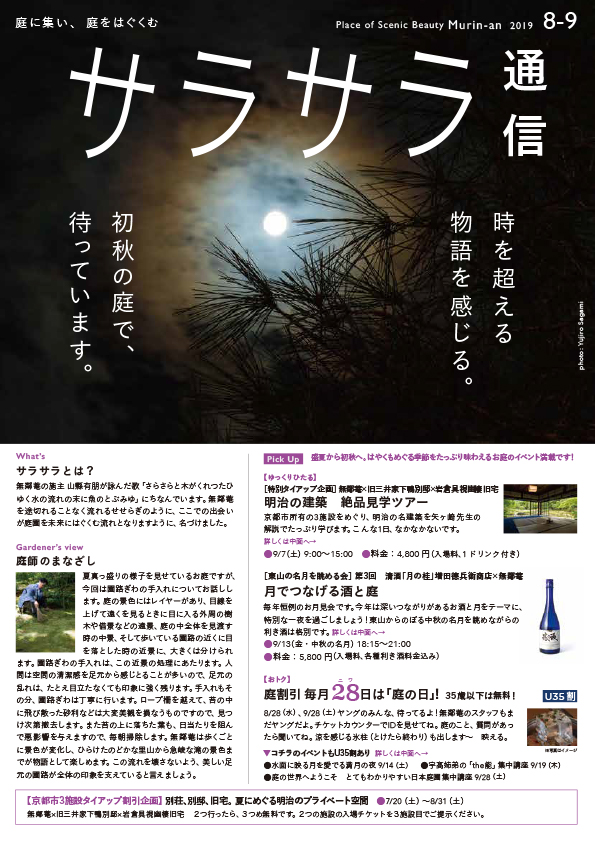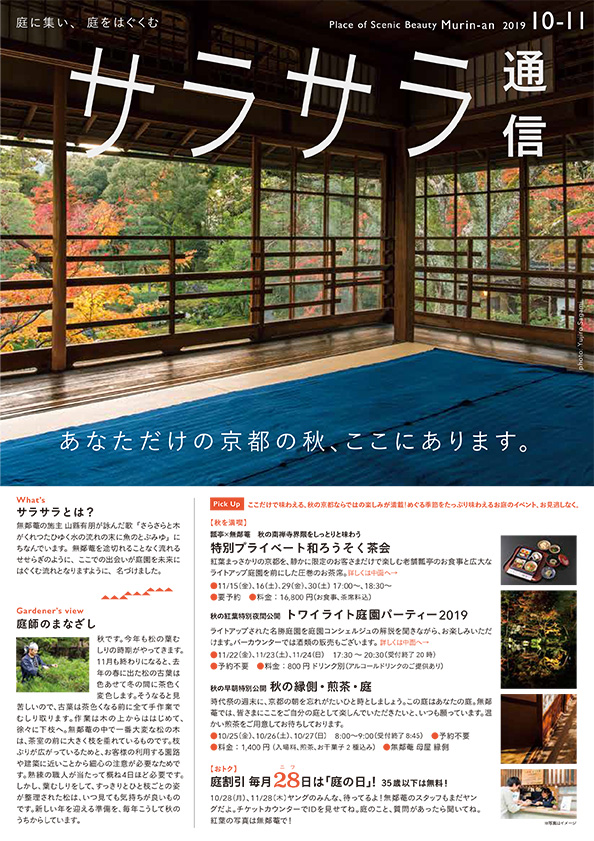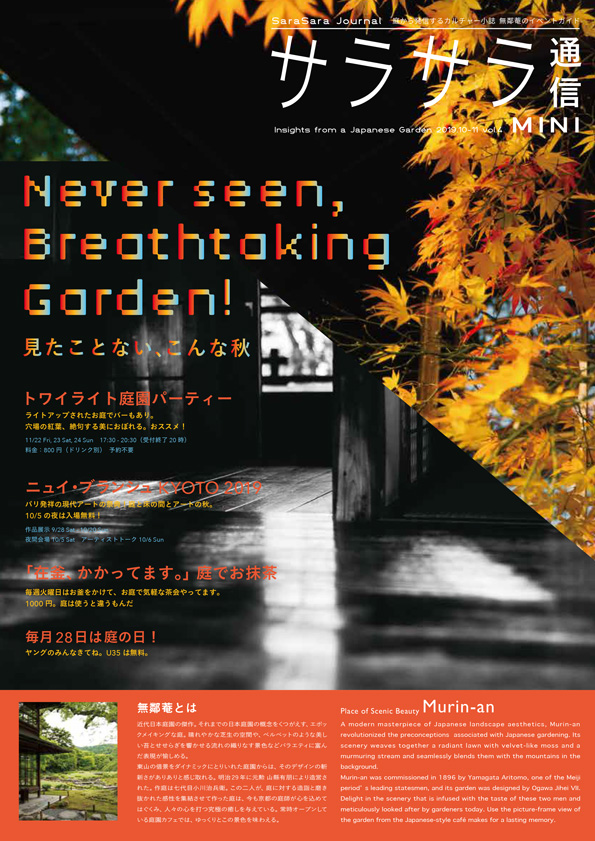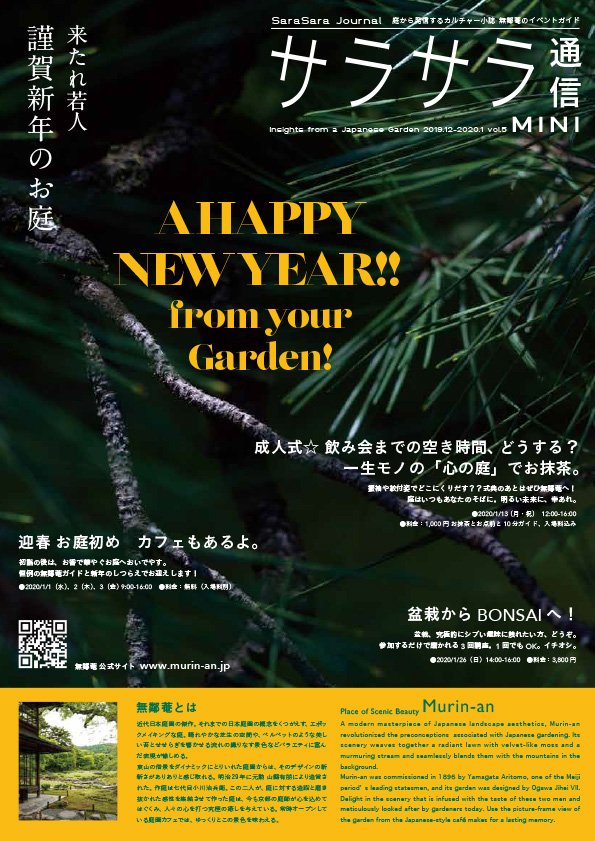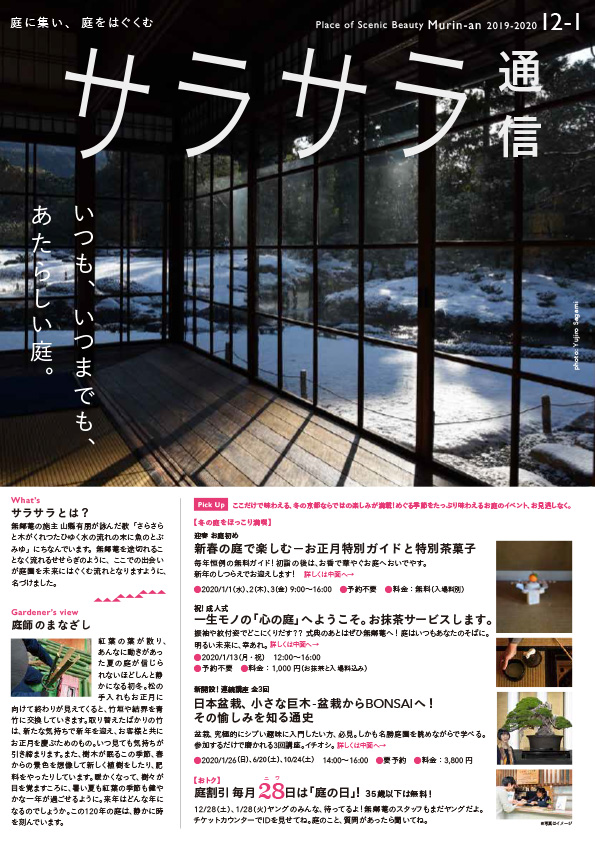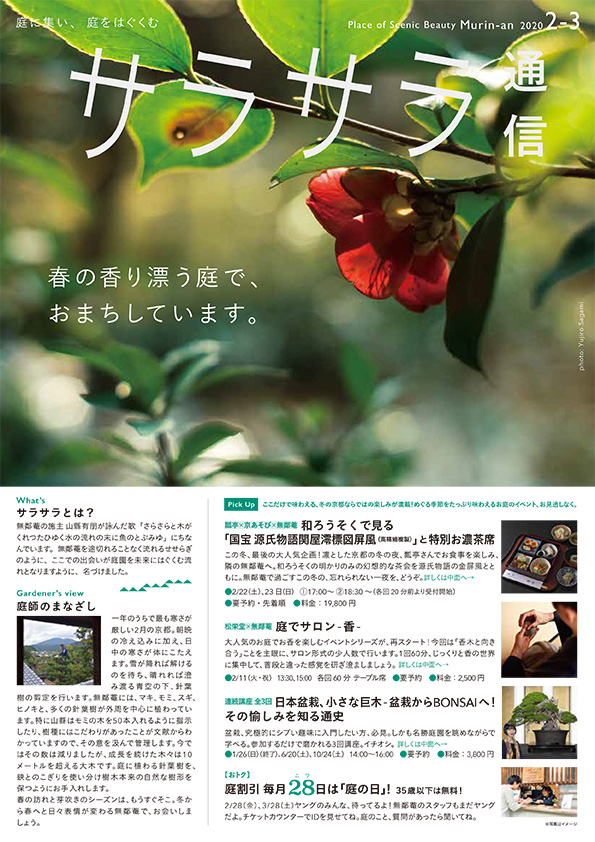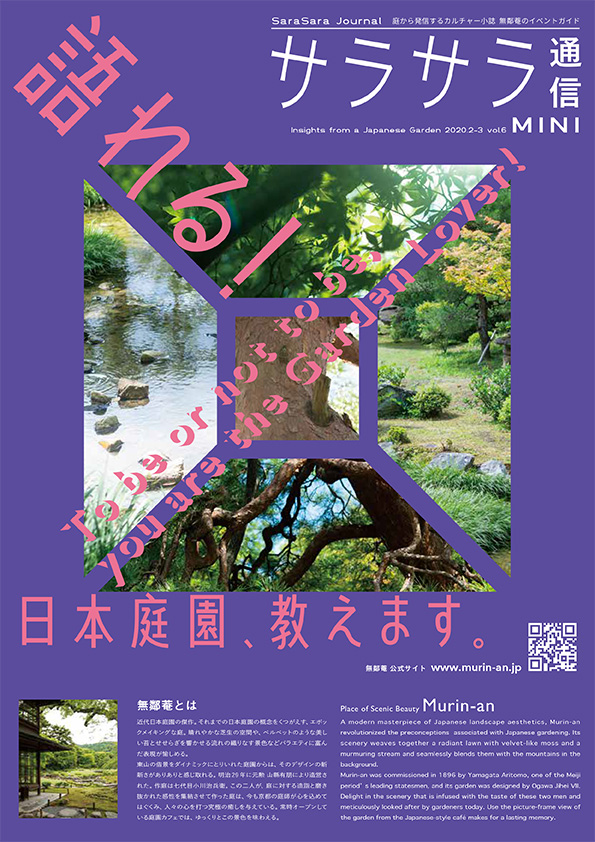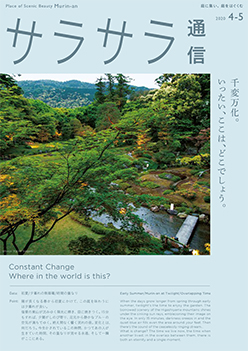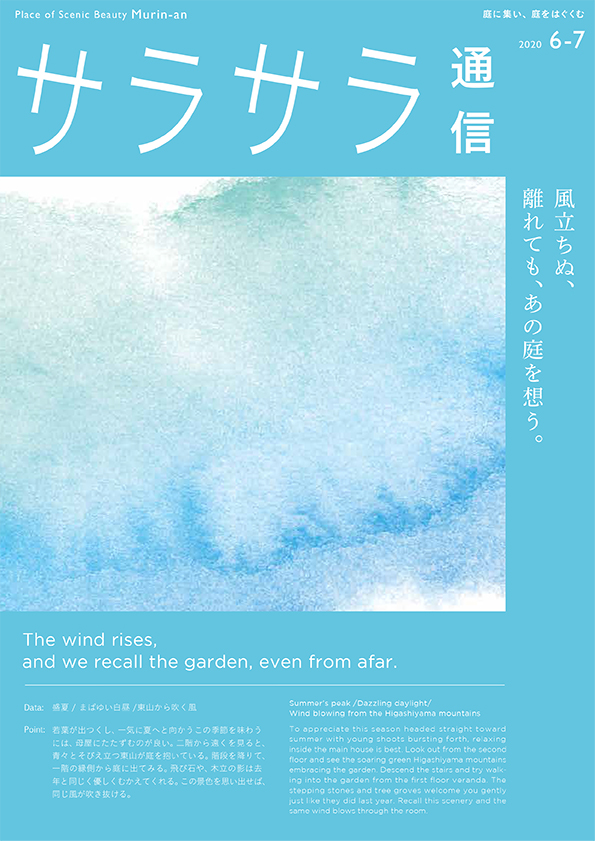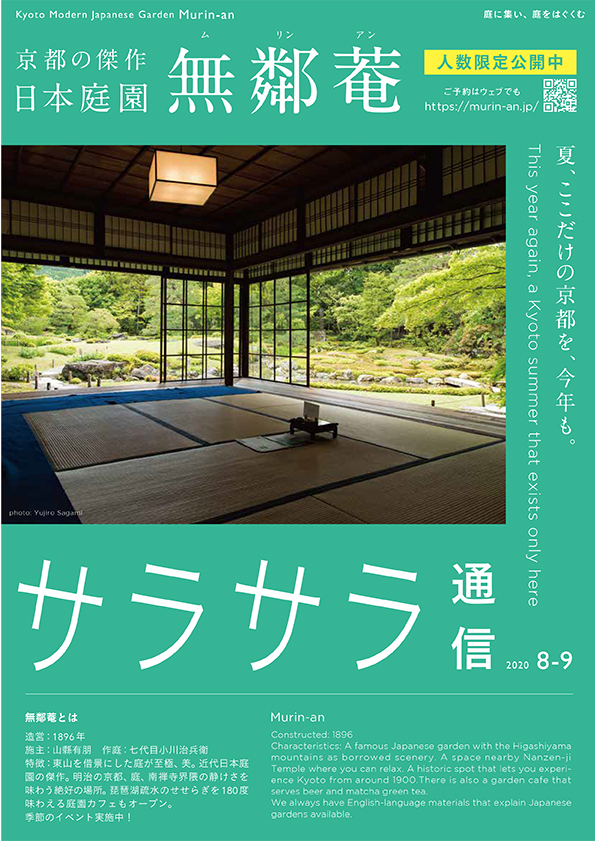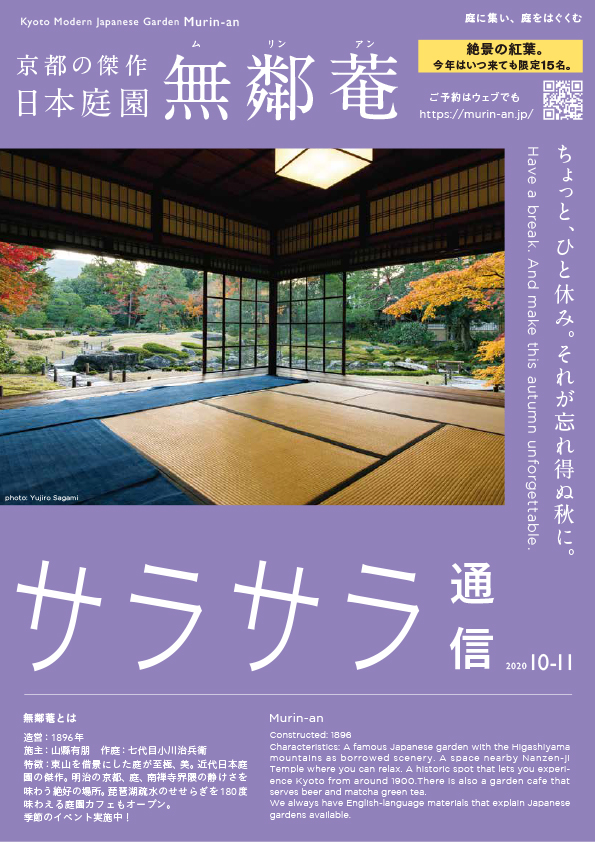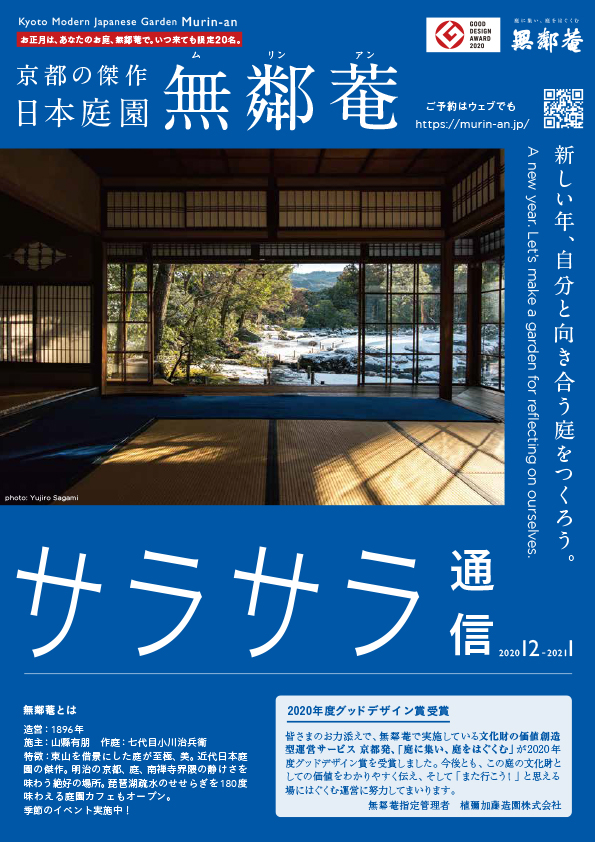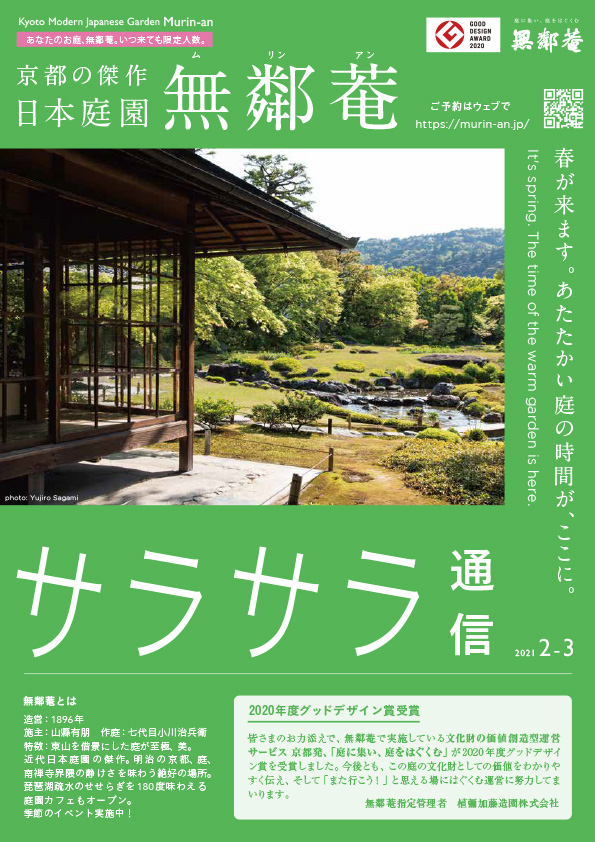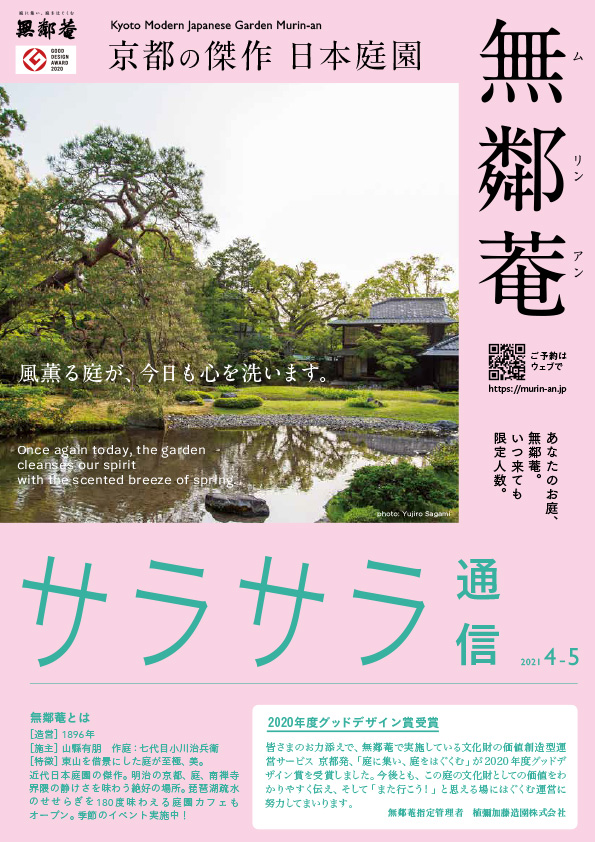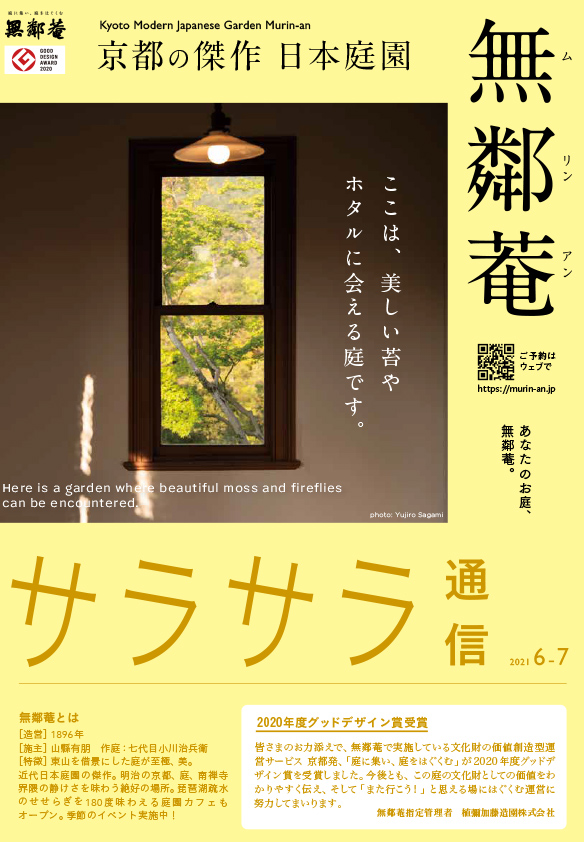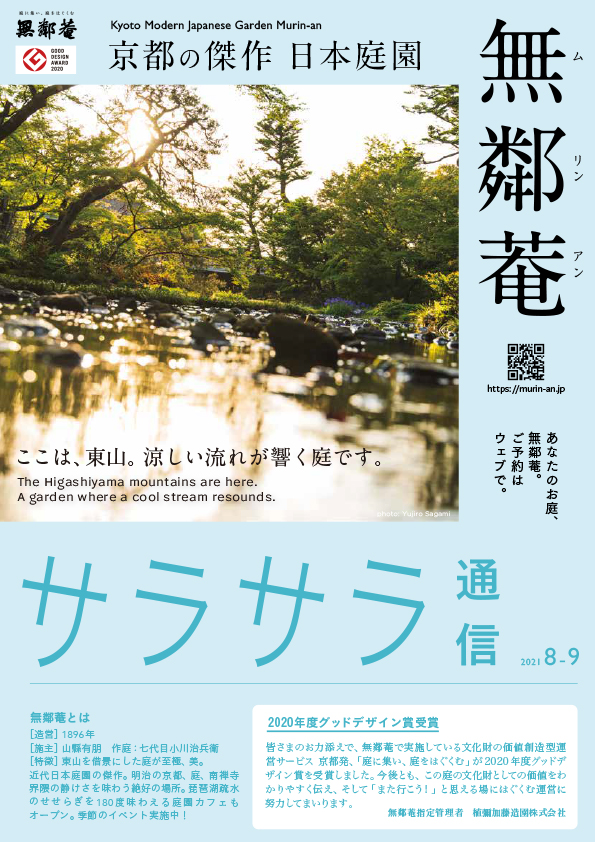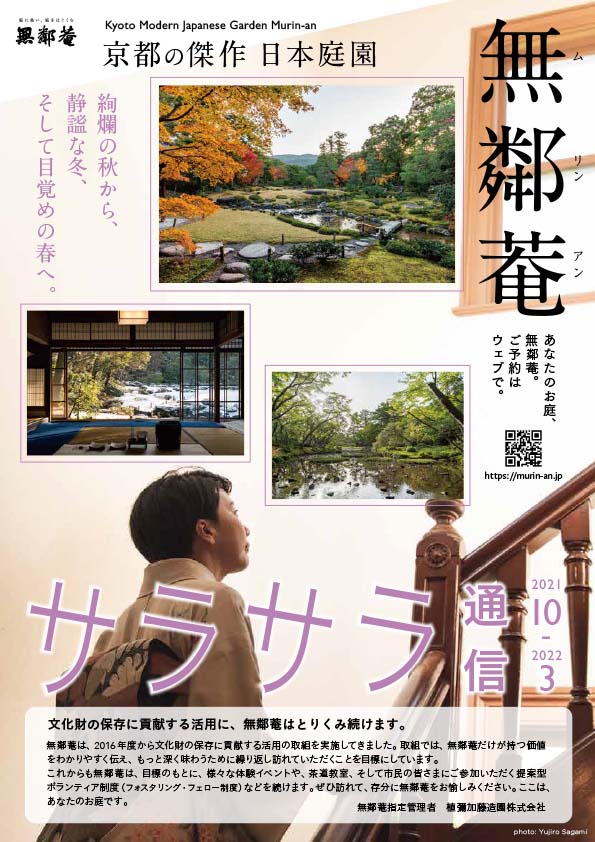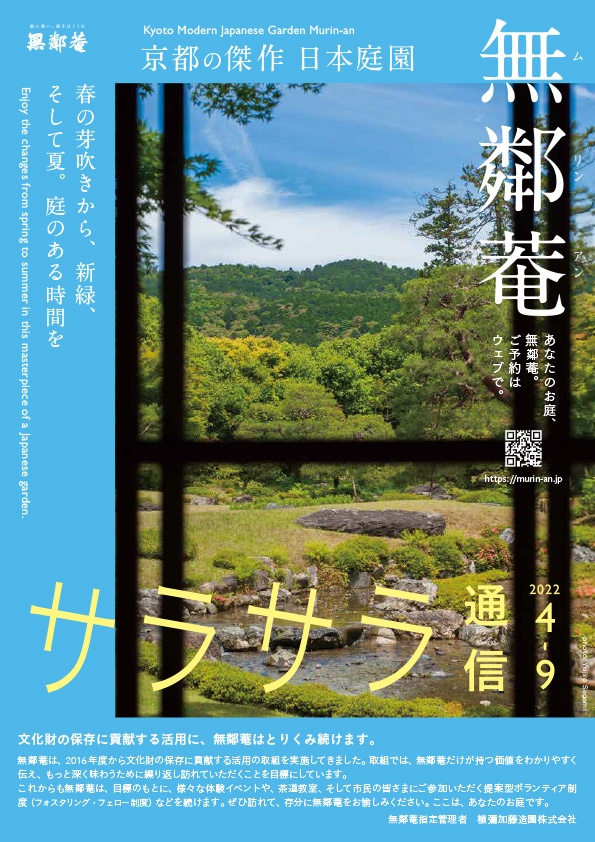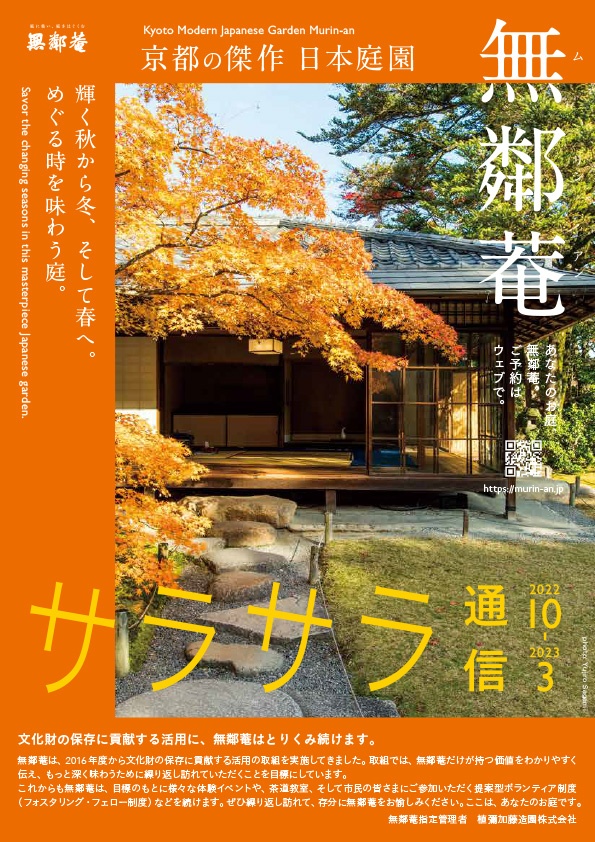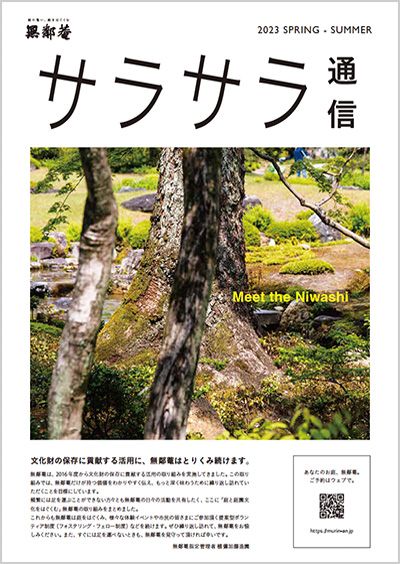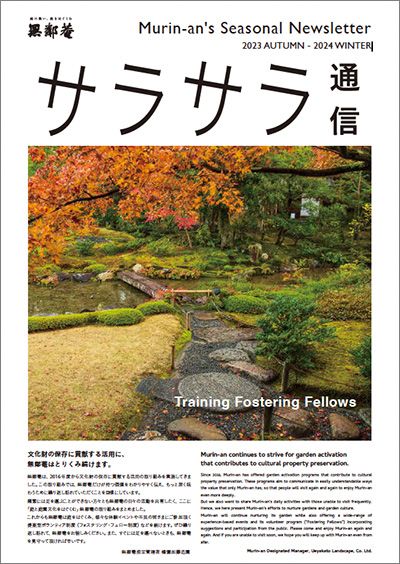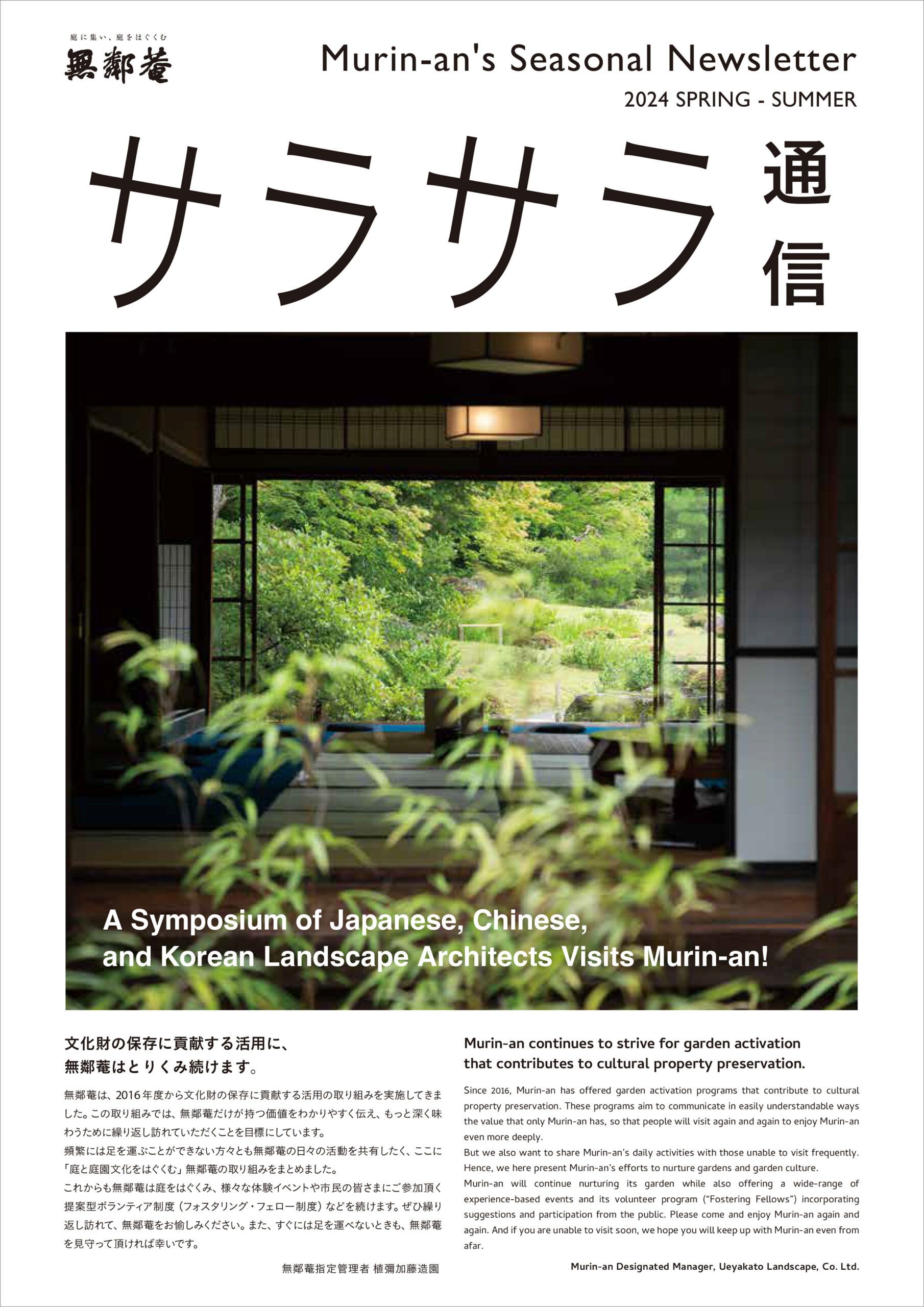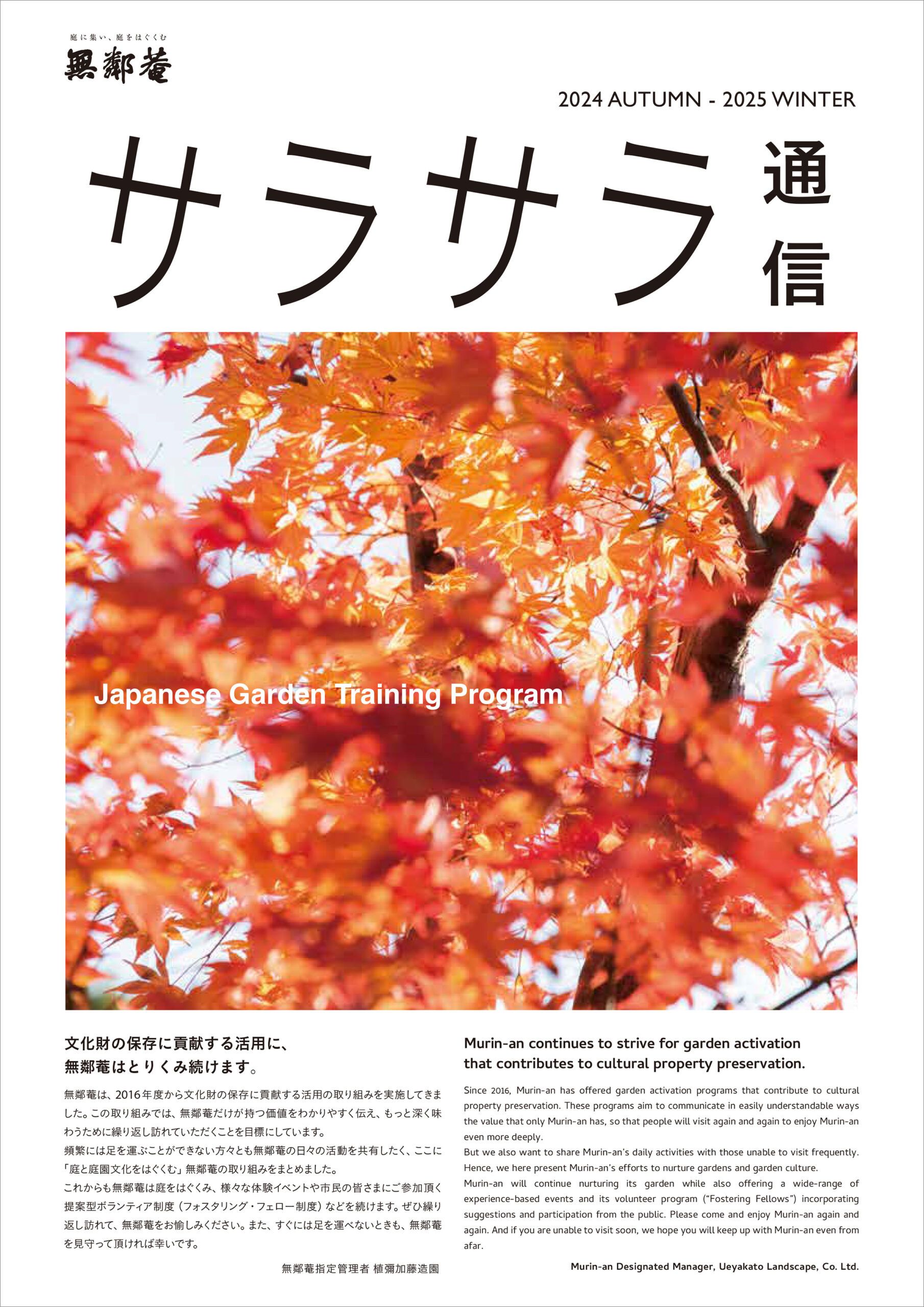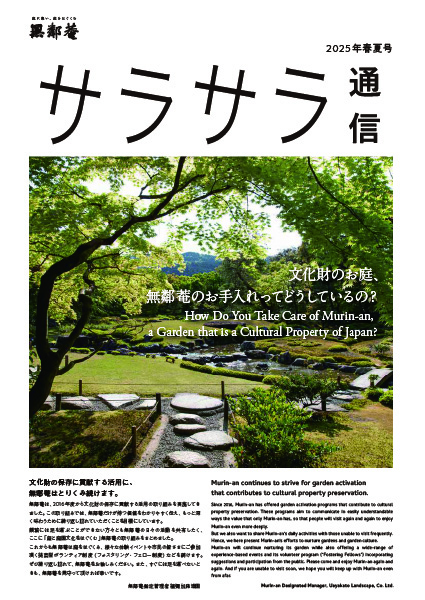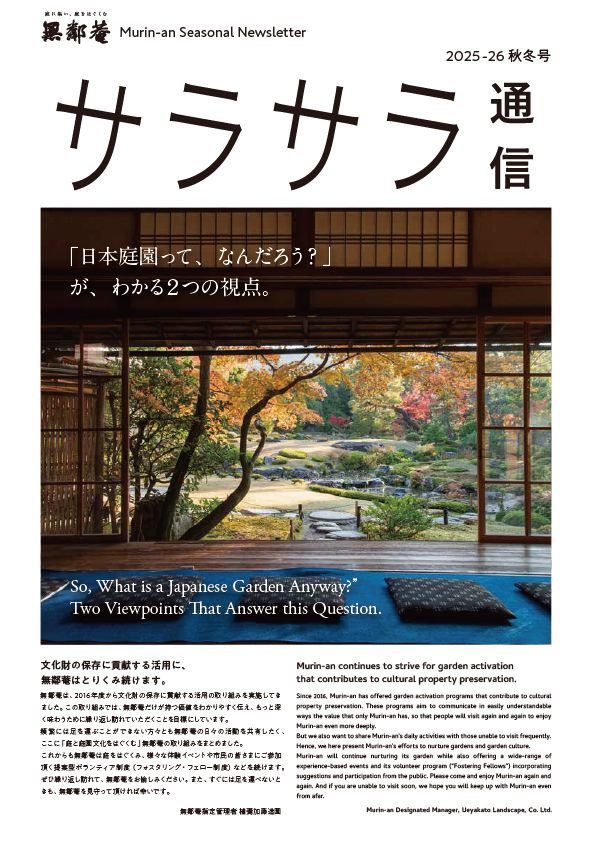Murin-an Periodical
This is the information program of Murin-an Garden.
It provides information on Japanese gardens, invitations to events that help foster the garden and seasonal highlights.
The name of this periodical is Sara-Sara News.
What does “sara-sara” mean? In Japanese, this word is used to evoke a gentle rustle or murmuring sound in nature. We have adopted it from a passage in a poem by Yamagata Aritomo, Murin-an’s original owner. It reads
At the end of a water stream/That murmurs gently as it travels hidden beneath the shade of trees/I see a fish leap
We chose this publication’s title to reflect our hope that, like the ceaseless flow of the murmuring brook flowing around Murin-an, the encounters here will produce a current toward nurturing Japanese gardens for the future.
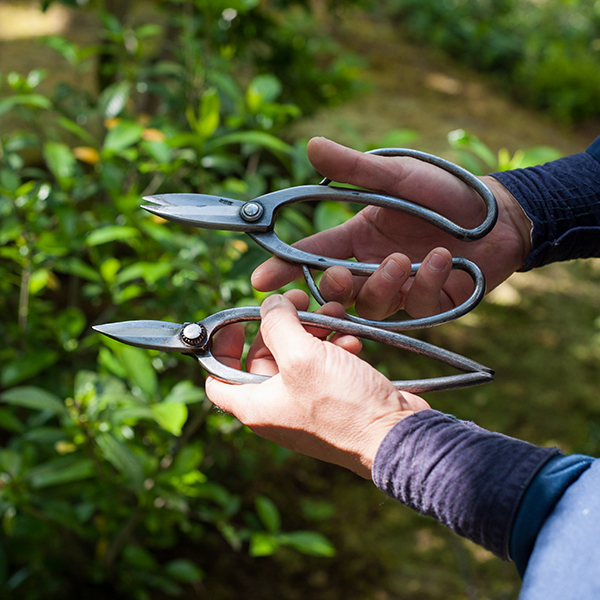
Gardener’s View
Inside the garden, you can feel the speed with which spring changes into summer. During gardening work, not only sudden changes in scenery, but even the minute transitions in the trees and plants can be felt. When the tall evergreen trees finish defoliating in early spring, the shrubs then vigorously begin growing out their branches. If we were to relate a garden’s shrubs to music, I think they would play the role of a basso continuo: While we may not take the time to look directly at the shrubs themselves, the scenery wouldn’t feel complete without them. We decide the heights of these shrubs by keeping in mind what sort of balance they strike with the garden’s scenic stones, which are a key feature of the scenery. We don’t trim shrubs all at once using pruning clippers, but rather clip each individual branch with respect to its relationship to the stones. We hope you’ll take your time looking at the azaleas and satsuki azaleas nearby the garden path.


